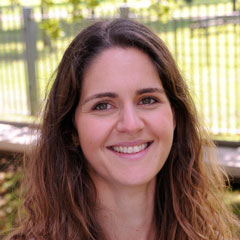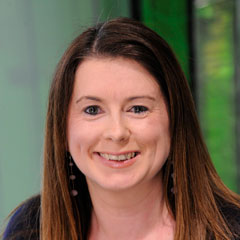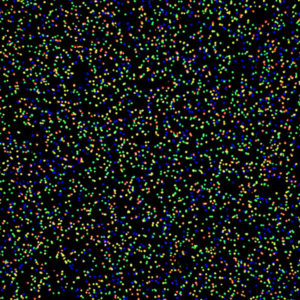Next Generation Sequencing
24–31 March 2023
Wellcome Genome Campus, UK
Hands-on training in the latest next generation sequencing systems.
Summary
Next generation sequencing (NGS) has become the premier tool in genetic and genomic analysis. This hands-on laboratory and informatics course is directed at scientists who will be generating and interpreting sequence information in their research and wish to improve their understanding of various sequencing platforms, techniques, and their applications.
Participants will be able to make informed decisions about appropriate techniques to apply in a variety of research contexts. Training will cover applications for target enrichment, bacterial sequencing, cancer genomic analysis, human variation analysis, and RNA-Seq.
The programme will include theoretical and practical information on NGS systems currently available and those on the near horizon. Technologies will be chosen from short- and long-read sequencing platforms including:
- PacBio
- Illumina Miseq/HiSeq/Novaseq
- Oxford Nanopore MinION
All the basic techniques of post-sequencing analysis will also be covered in hands-on genomics data analysis sessions including QC, sequence alignment, and variant calling.
Target audience: Applicants should be postdoctoral scientists, senior PhD students, or junior faculty members actively engaged in or soon to commence research involving next generation sequencing instrumentation.
Prerequisites
Please note: For the data analysis components of the course, applicants will require a working knowledge of the UNIX/Linux operating system. This may be obtained through various methods and is essential to fully benefit from the course. There are numerous online introductory tutorials to the UNIX/Linux operating system and command line, including:
http://www.ee.surrey.ac.uk/Teaching/Unix
http://swcarpentry.github.io/shell-novice/
This course is not meant to replace the manufacturers’ training normally supplied with new instruments, nor is it intended to be a training course for those solely interested in NGS data analysis (please refer to our website for dedicated bioinformatics courses).
Programme
The course will run approximately 08:30-18:00 (BST) daily.
The programme will include lectures, seminars, practical sessions, and social events covering the following topics:
Library Prep
- Preparing high-quality libraries from samples
Sequencing
- Overview: Motivation and fundamental concepts
- Detailed description of prominent sequencing technologies: current and emerging platforms
- preparing chips for sequencing and performing sequencing runs on various platforms
Data analysis
- Data QC: How to determine if a sequencing run has performed well
- Alignment to a reference sequence and variant-calling of NGS data
The course will also include seminars by invited speakers, who will highlight their ground-breaking work in the applications of next generation sequencing.
Learning Outcomes
Upon completion of the course, participants should be able to:
- prepare high quality sample libraries for use on next generation sequencing platforms
- set up sequencing runs for the various platforms utilised during this course
- critically assess a sequencing run and distinguish between good and poor-quality data
- describe the advantages and disadvantages of different sequencing technologies in order to select technologies appropriate to specific needs
- process NGS data and use computational tools for sequence alignment and variant-calling
Instructors and speakers
Course Organisers

Louise Aigrain
Wellcome Sanger Institute, UK

Jacqueline Keane
Wellcome Sanger Institute, UK

Michael Quail
Wellcome Sanger Institute, UK
How to apply
Prerequisites
For the data analysis components of the course, applicants will require a working knowledge of the UNIX/Linux operating system. This can be obtained by various methods and is essential to fully benefit from the course. There are numerous online introductory tutorials to the UNIX/Linux operating system and command line, including:
http://www.ee.surrey.ac.uk/Teaching/Unix
http://swcarpentry.github.io/shell-novice/
How to Apply
Please complete the online application form. Places are limited and will be awarded on merit. If you have any problems with the online application process, please contact us.
Please note: Applications must be supported by a recommendation from a scientific or clinical sponsor (e.g. supervisor, line manager or head of department). A request for a supporting statement will be sent to your nominated sponsor automatically during the application process. Applicants must ensure that their sponsor provides this supporting statement by the application deadline. Applications without a supporting statement cannot be considered.
Travel visas
Successful applicants will be provided with a support letter for their visa application, if required.
Please visit the following websites for further information on visiting the UK:
Cost
| Cost | ||
| *Course fee | £1,150 |
*The course fee is subsidised by Wellcome Connecting Science Courses and Conferences and applies to non-commercial applicants. Please contact us for the commercial fee.
Bursaries
Limited bursaries are available (up to 50% reduction on the course fee) and are awarded on merit. If you would like to apply for a bursary, please complete the bursary section of the online application form.
Where there are many bursary applications, the selection committee may issue smaller amounts.
Bursaries can be applied for as part of the course application form. Applicants will be notified of a bursary award along with their place on the course, usually within one month of the application deadline. The decision of the selection committee is final.
Please note that both the applicant and sponsor are required to provide a justification for the bursary as part of the application.
Additional funding opportunities
Visit our support page for additional financial support currently available.
Testimonials
“This is the best course I ever attended. It was very well organized. I found the instructors very approachable and willing to help”
“Thanks so much for putting this course together, organising it so smoothly and for such a great time!”
“I really loved the course, thanks so much to everyone involved.”

